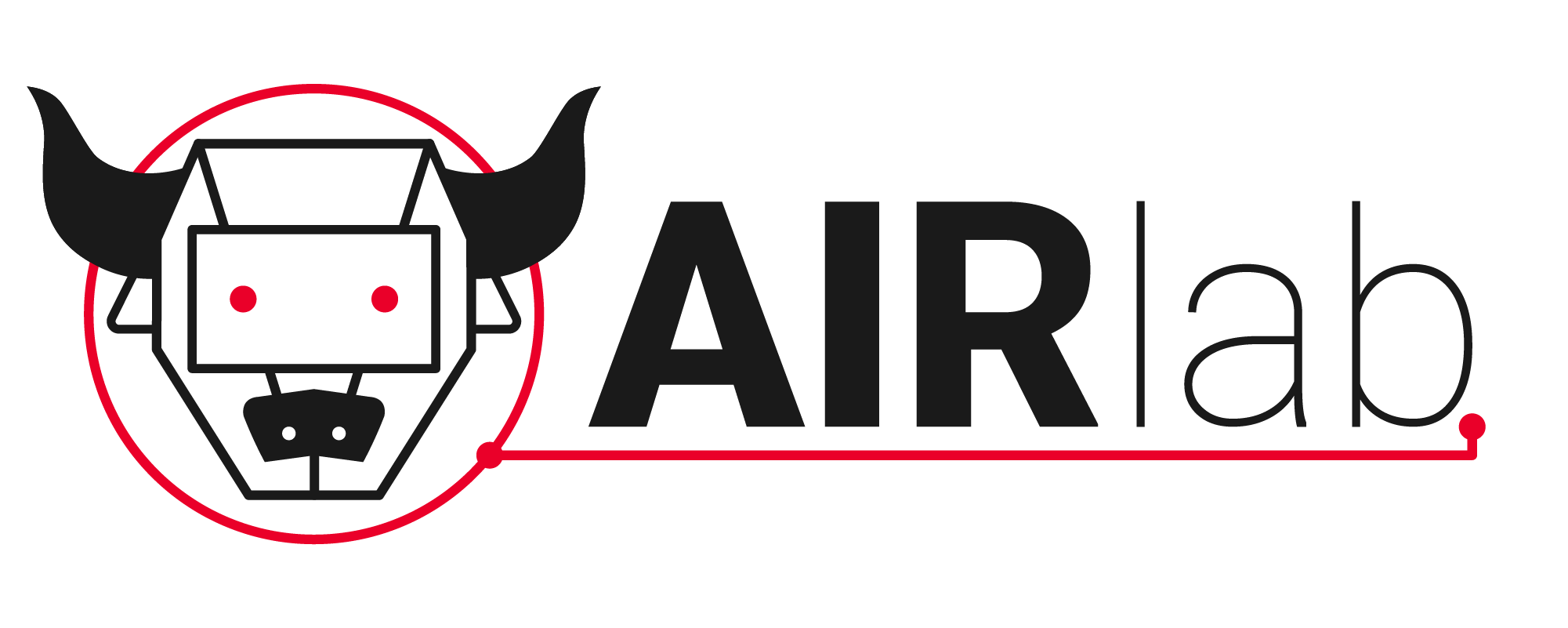Phd positions
The call for admission to Phd positions in Computer Science 2025-2028 will be opening soon.
Our lab will be proposing topics related to: Social Robotics and Human Robot Interaction. .
Social robots are autonomous robots designed to interact with people by exhibiting social and emotional behaviors. These robots need to be able to perceive and understand human behavior, as well as interpret and react to it in a human-like manner. The goal of this PhD research is to develop new concepts and methods for human-robot interaction that will enable social robots to adapt to user behavior, preferences, and emotions, to establish a personal and emotional relationship. The potential application areas include assistive robotics (e.g., robots for autism), educational robotics, ambient assisted living (e.g., robots for the elderly), etc. The PhD student will work in the advanced interactions and robotics (AIR) lab, together with other PhD students, research fellows, and robots.
Thesis proposals
Pepper interacting with deaf users
A thesis is already underway with the help of a student and her tutor who are helping us to teach Pepper the LIS language. In order for Pepper to be able to express as many words as possible, within its limitations, we still need to work a lot!
Requirements: Android, HCI, Choregraphe
Educational robotics fablab
Research and development in the context of educational robotics: evolution of Wolly, the educational and affective robot from the Department of Computer Science
Requirements: Python, HCI
Emotional body language with the Nao robot.
The aim of the study is to gain insight into how humans perceive and respond to emotional cues from robotic agents that convey emotions through body language and gestures specifically designed and developed for this purpose.
Requirements: Python, HCI
How the personality and memory of a robot can influence user modeling in Human-Robot Interaction.
This proposal focuses on the creation of distinct user models that reflect unique robotic personalities, exploring the interplay between individual traits, memory, and social interactions to replicate human-like processes, and trying to provide users with more engaging and natural experiences. For master students.
Requirements: Python. Android, DB, HCI
Robot in museum.
Social robots have often been used as museum guides, with great success, but experiments have often shown limitations. In this thesis, we want to program and test our social robot Sanbot as a museum guide, specialised in disabled users, in a major museum in Turin.
Requirements: Android, HCI
Animal robot interaction.
In the future, social robots will inhabit our homes and will have to interact not only with humans but also with animals. In this research, we want to develop AI-based recognition models capable of recognising the emotions and, more generally, the body language of animals, in order to enable home robots to interpret the moods of pets.
Requirements: Python, HCI, AI
The impact of big 5 model of personality in HRI
This proposal is aimed at formalizing the Big 5 model of personality in a knowledge base, for instance an ontology, and connect this formal structure to robot behavior. For master students.
Ideal Requirements: AI, Python, DB, Affective computing, Ontology modeling, OWL, Protegé, SWRL.
Simulating NAO and Pepper behavior with Webots
Webots is an open source and multi-platform desktop application used to simulate robots. It provides a complete development environment to model, program and simulate robots. It has been designed for a professional use, and it is widely used in industry, education and research. It can be programmmed in C, Python.
This proposal is aimed at evaluating Webots potential in designing a social interaction with NAO/Pepper.
Requirements: Python, DB, HCI



